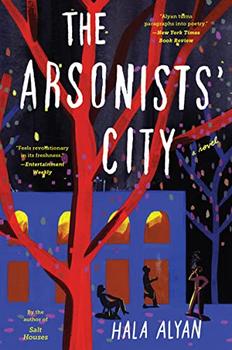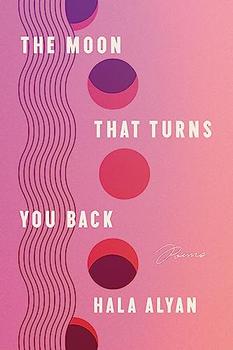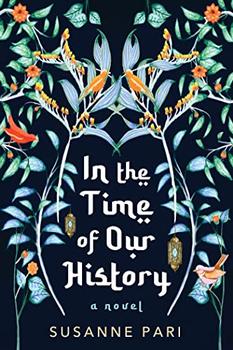Summary | Excerpt | Reviews | Beyond the book | Read-Alikes | Genres & Themes | Author Bio

A rich family story, a personal look at the legacy of war in the Middle East, and an indelible rendering of how we hold on to the people and places we call home.
The Nasr family is spread across the globe—Beirut, Brooklyn, Austin, the California desert. A Syrian mother, a Lebanese father, and three American children: all have lived a life of migration. Still, they've always had their ancestral home in Beirut—a constant touchstone—and the complicated, messy family love that binds them. But following his father's recent death, Idris, the family's new patriarch, has decided to sell.
The decision brings the family to Beirut, where everyone unites against Idris in a fight to save the house. They all have secrets—lost loves, bitter jealousies, abandoned passions, deep-set shame—that distance has helped smother. But in a city smoldering with the legacy of war, an ongoing flow of refugees, religious tension, and political protest, those secrets ignite, imperiling the fragile ties that hold this family together.
In a novel teeming with wisdom, warmth, and characters born of remarkable human insight, award-winning author Hala Alyan shows us again that "fiction is often the best filter for the real world around us" (NPR).
The Wrong Ghosts
Tonight the man will die. In some ways, the city already seems resigned to it, the Beirut dusk uncharacteristically flat, cloudy, a peculiar staleness rippling through the trees like wind. It's easy to costume the earth for grief, and tonight the birds perched upon the tangled electricity wires look like mourners in their black and white feathers, staring down at the concrete refugee camps without song.
There are orange trees in the courtyard, planted by the children the previous year; the NGO workers had wanted something bright and encouraged the youngest children to tie cheap ribbons to the branches, but they'd forgotten about the muddy season, and now the ribbons flap limply, streaked in dirt.
The man himself—Zakaria—knows it, or doesn't. He notices the queer feeling of the camps, the way his mother's makloubeh tastes perfectly fine but seems to be saltless, the meat stringier than usual. His sisters are gathered in the living room, cross-...
Alyan writes well and with insight, but the pacing stumbles in places. While most of the book proceeds slowly and methodically, the ending feels overly rushed, with too many loose ends wrapped up hastily. And while Mazna and Idris's story is genuinely absorbing, my interest flagged in the portions of the book dealing with the private lives of the Nasr children. Despite some flaws in execution, however, The Arsonists' City is a compelling, multidimensional portrayal of the messy complexities of family life, and fans of character-driven novels will find this ambitious — if uneven — intergenerational drama to be a rewarding read...continued
Full Review
(582 words)
This review is available to non-members for a limited time. For full access,
become a member today.
(Reviewed by Elisabeth Herschbach).
 Etaf Rum, New York Times best-selling author of A Woman Is No Man
I didn't think I could love The Arsonists' City as much as Salt Houses, but I did. It was sharp, thought-provoking. I couldn't put it down. Hala Alyan is a lyrical force, a much-needed Arab American voice.
Etaf Rum, New York Times best-selling author of A Woman Is No Man
I didn't think I could love The Arsonists' City as much as Salt Houses, but I did. It was sharp, thought-provoking. I couldn't put it down. Hala Alyan is a lyrical force, a much-needed Arab American voice. Mira Jacob, author of Good Talk and The Sleepwalker's Guide to Dancing
No one knows the human heart like Hala Alyan. Her ability to show its unexpected contours is on full display in The Arsonists' City—a book so gorgeously written I found myself reading sentences aloud just to keep them with me a little longer.
Mira Jacob, author of Good Talk and The Sleepwalker's Guide to Dancing
No one knows the human heart like Hala Alyan. Her ability to show its unexpected contours is on full display in The Arsonists' City—a book so gorgeously written I found myself reading sentences aloud just to keep them with me a little longer. Rumaan Alam, author of Leave the World Behind
I don't exactly understand how Hala Alyan does it—conjures love, sorrow, betrayal, and joy; goes from being funny and warm to incisive and thoughtful—but as a reader, I'm glad that she does. The Arsonists' City delivers all the pleasures of a good old-fashioned saga but in Alyan's hands, one family's tale becomes the story of a nation—Lebanon and Syria, yes, but also the United States. It's the kind of book we are lucky to have.
Rumaan Alam, author of Leave the World Behind
I don't exactly understand how Hala Alyan does it—conjures love, sorrow, betrayal, and joy; goes from being funny and warm to incisive and thoughtful—but as a reader, I'm glad that she does. The Arsonists' City delivers all the pleasures of a good old-fashioned saga but in Alyan's hands, one family's tale becomes the story of a nation—Lebanon and Syria, yes, but also the United States. It's the kind of book we are lucky to have. Located on the Mediterranean Sea, tiny Lebanon has the highest per capita population of Syrian refugees in the world, hosting an estimated 1.5 million who have fled from its war-torn neighbor. To put this in perspective, Lebanon is about half the size of Massachusetts with a population of just under eight million as of 2019. It has long been caught in the middle of the Israeli/Palestinian conflict and has faced violence and upheaval for more than half a century as a result. Decades before the outbreak of Syria's civil war in 2011 sent an influx of people across its borders, Lebanon was already home to a sizable population of Palestinian refugees — like Zakaria and his mother Hayat in Hala Alyan's The Arsonists' City.
Located on the Mediterranean Sea, tiny Lebanon has the highest per capita population of Syrian refugees in the world, hosting an estimated 1.5 million who have fled from its war-torn neighbor. To put this in perspective, Lebanon is about half the size of Massachusetts with a population of just under eight million as of 2019. It has long been caught in the middle of the Israeli/Palestinian conflict and has faced violence and upheaval for more than half a century as a result. Decades before the outbreak of Syria's civil war in 2011 sent an influx of people across its borders, Lebanon was already home to a sizable population of Palestinian refugees — like Zakaria and his mother Hayat in Hala Alyan's The Arsonists' City.
The first ...
This "beyond the book" feature is available to non-members for a limited time. Join today for full access.

If you liked The Arsonists' City, try these:

by Hala Alyan
Published 2024
From the author of The Arsonists' City and The Twenty-Ninth Year, a new collection of poetry that traces the fragmentation of memory, archive, and family–past, present, future–in the face of displacement and war.

by Susanne Pari
Published 2023
Inspired by her own family's experiences following the 1979 Islamic Revolution, Susanne Pari explores the entangled lives within an Iranian American family grappling with generational culture clashes, the roles imposed on women, and a tragic accident that forces them to reconcile their guilt or forfeit their already tenuous bonds.




I have lost all sense of home, having moved about so much. It means to me now only that place where the books are ...
Click Here to find out who said this, as well as discovering other famous literary quotes!